
Peak Power: Nepal Microgrid
I
28 Nov. 2016 by Tom van der Linden
Though still an artisinal process in many cases, beer brewing is no longer a fully manual process and a lot of high-tech industrial machinery have allowed breweries to scale up,
Nigerian Solar Power Failure
Speed read
- Many projects fail through lack of long-term government support
- Those planning projects lack awareness of how to deliver power
- Solar power should be better integrated into communities

1. It is proposed to feed about 7,000 railway stations with solar power in the medium term. A beginning has already been made in 300 stations. Works will be taken up for 2,000 railway stations as part of 1000 MW solar mission.
2. In solar energy, Government now propose to take up the second phase of Solar Park development for additional 20,000 MW capacity.
3. Solar tempered glass for use in the manufacture of solar cells/panels/modules , Basic Customs Duty reduced to NIL from current rates of 5%
4. Parts/raw materials for use in the manufacture of solar tempered glass for use in solar photovoltaic cells/modules, solar power generating equipment or systems, flat plate solar collector, solar photovoltaic module and panel for water pumping and other applications, subject to actual user condition, CVD reduced to 6% from current rates of 12.5%
5. All items of machinery required for fuel cell based power generating systems to be set up in the country or for demonstration purposes, subject to certain specified conditions , BCD Reduced to 5% from 10%/7.5% and CVD Reduced to 6% from 12.5%
6. All items of machinery required for balance of systems operating on biogas/ bio-methane/ by-product hydrogen, subject to certain specified conditions , BCD Reduced to 5% from 10%/7.5% and CVD Reduced to 6% from 12.5%
7. Ministry of New & Renewable Energy will get budget allocation of Rs.5473 Crores in FY 2017-18, up from Rs.5036 Crores in FY 2016-17
8. Pilot plants for environment friendly disposal of solid waste and conversion of biodegradable waste to energy are being set up at New Delhi and Jaipur railway stations. Five more such solid waste management plants are now being taken up.
9. Resin and catalyst for use in the manufacture of cast components for Wind Operated Energy Generators [WOEG], subject to actual user condition , BCD reduced to 5% from 7.5%, CVD reduced to NIL from 12.5%, SAD reduced to NIL from 4%
10. India is on its way to achieve 100% village electrification by 1st May 2018. An increased allocation of
Hangzhou Fengling finishes 200 MW solar-aquaculture project

Photo credit: Thomas Roche via Flickr
The panels were mounted on piles above the surface of the Changhe and Zhouxiang reservoirs in Cixi, Zhejiang province.
The Hangzhou-based company invested approximately 1.8 billion yuan ($262.6 million) in the project, which spans about 299.5 hectares.
It did not reveal the solar panel supplier.
In an online statement, the Cixi municipal authorities hailed the project as a
There are 4 ways to get power today in Nigeria. The grid (NEPA/PHCN/DICO), a generator, an Inverter or a solar generator. While each has its strength, there are clear advantages some hold over the other. We will review them in Numerical order and then you can decide which is the best solution for you.
1. The grid NEPA/PHCN/DISCO. In most countries this is your first choice. It should be reliable, quick to deploy, low cost of ownership and requires no maintenance. In Nigeria and most of Sub Saharan Africa the grid is unreliable. You can go days without power. When the power is delivered it can be epileptic, too low or too high. Can be destructive to appliances and sensitive electronics. You can’t plan because there is no time table for when you will have power. Expensive to deploy in ares that don’t have access to the grid.
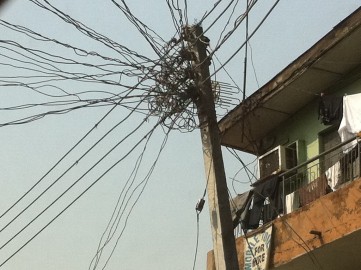
2. A Generator: Inexpensive to buy, very quick to deploy, very easy to purchase and it is a mature solution. Easy to deploy in remote areas Generators are noisy, they pollute, they require expensive fuel frequently, need service and require a ventilated area for installation. High risk of injury from burns or asphyxiation. The cost of fueling a generator can be high if you run them daily. Most small generators are designed as back up and they can’t run for extended periods of time without breaking down or service. Low quality generators can be destructive to sensitive electronics. The running costs are higher than an other solution available.

3. The Inverter: They cost more than a generator per Kw to buy and requires professional installation. They require very little maintenance, make no noise, don’t pollute, can be installed indoors. The require little to no maintenance. Inverters have an automatic transfer switch and UPS function built in. The Inverter needs the grid or a generator to recharge the batteries. They were not designed as permanent solutions, so they get hot during extended use and eventually will suffer failure from excessive heat. The battery chargers on most Inverters lack the proper charge logic, resulting in premature battery failure.
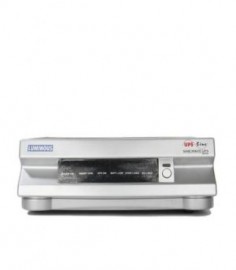
4. Solar power Generator: Has the most initial upfront cost per Kw. Requires installation by an experienced solar professional. Can be designed to meet the budgets and needs of a client. Can be a back up or permanent solution. Makes no noise, does not pollute, designed as a permanent solution, equipment is more robust and will last longer. Comes with a UPS and an automatic transfer switch built in. The batteries will charge with the sun, NEPA/PHCN or a generator. If the system is properly sized you can completely avoid using a generator. Some customers in remote areas have gone completely off the grid. Has running costs that are close to grid power per watt hour. Lowest after the grid. It takes a few days to as much as one month to tailor your usage to your installed capacity. Solar power requires that the panels be cleaned during the dry season.
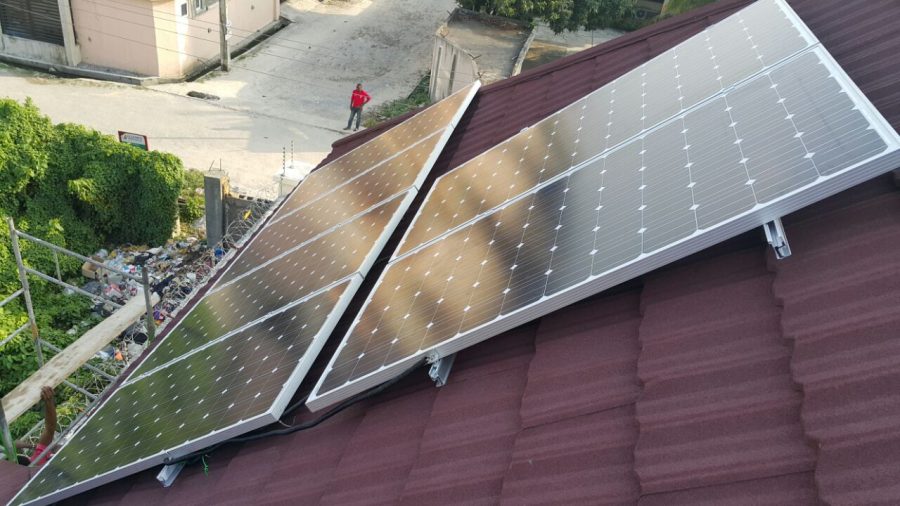
What you decide to use will be determined by your budget, the amount of power you receive from the grid and how much space you have. We hope this helps you decide on a solution that will help you manage the poor supply coming from the grid.
The inverter was a glorious device when it was introduced to the Nigerian market. It allowed people to store power from NEPA/PHCN when it was available and released it when the power went out. This worked well for a while and suddenly after
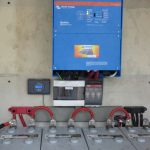
Problem:
Client lives in a model home in Old Gra Port Harcout. Low energy consumption, low carbon foot print, high ceilings, central air conditioning, no storage water tank and a beautiful full sized swimming full. The house requires power 24/7 for the duct fans to move air and for the faucets / taps to provide water. You can imagine the inconvenience of not having water in the middle of a shower when PHCN takes power.
His Current Solution:
A Sukham 10 kva single phase Inverter and an 80 kva Cat generator. Three phase for the AC condensers and single phase for everything else.
The Sukham was installed by a local company that provided good service but shoddy workmanship. The batteries were about to be replaced for the third time since 2014. The customer was convinced that the problem was the battery and not the inverter and spent over N2,000,000 for 8 Deka batteries. The 8 Dekka batteries were added to his bad batteries and he was getting very poor results. The inverter was dead after 2 hours and the customer was back to running his generator when the grid failed.
Out with the old
[envira-gallery id=”2668″]
Our Solution
A Victron Quattro 8000, a Victron Battery Monitor and some creative programming. We installed the the Victron Quattro and programmed it to meet certain conditions that turned on the generator if PHCN was unavailable and turned off the generator when PHCN returned or the batteries were at full charge.
The system was installed by our tech team led by Kay and the customer is very happy. He can save over 40% on diesel compared to the old system. Next month we will add solar panels to minimize day time use of the generators. Later we will go three phase to allow him to run his AC on solar during the day. The Victron Quattro provided a proper three stage battery charging (extend battery life), twin AC Input that allowed us to connect the grid and generator at the same time and twin AC Output that allowed us to isolate loads at the inverter. The system starts and stops the generator based on actual need (programmed by us to meet how the customer used power) and usage. The customer will install a three phase automatic change over to allow him to take advantage of the times the inverter turns the generator on to power his central air conditioner. We worked closely with the supplier of his generator to design and program this solution.
Creative Solution in Port Harcourt
[envira-gallery id=”2660″]
Do you need creative solutions to your old problems? Call us today and save up to 80% on fuel while maintaining the life style that you have come to expect. Call AWPS Renewable Energy today at +234 1 8881040
Shattering Stereotypes
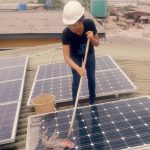
We have been saddled with so many wrong stereotypes about Nigeria and Nigerians. Let us correct a few.
In the late 1980’s Nigerians living in America were associated with fraud. Bank fraud and credit card fraud. Someone at a bank once asked me, “why are Nigerians so fraudulent” and I retorted why are are young Americans so stupid? Today Nigerians in America are held out as the most successful immigrant group. Highest education, highest per capita income and most purchase their homes within a generation. No other immigrant group has that record.
In Nigeria they say we don’t do maintenance. That is incorrect, if we did not we would not have so many road side mechanics. Nigerians are the only people that will be driving a car and the minute they hear a sound or shudder take it to a mechanic. We do the same with doctors. If a cure is not prescribed we assume the doctor or mechanic is fake.
Yes we service what we install. In addition to cleaning the panels, we check the connections to make sure they are tight, we test each individual battery, we test the controller and we test, open and clean the inverters.
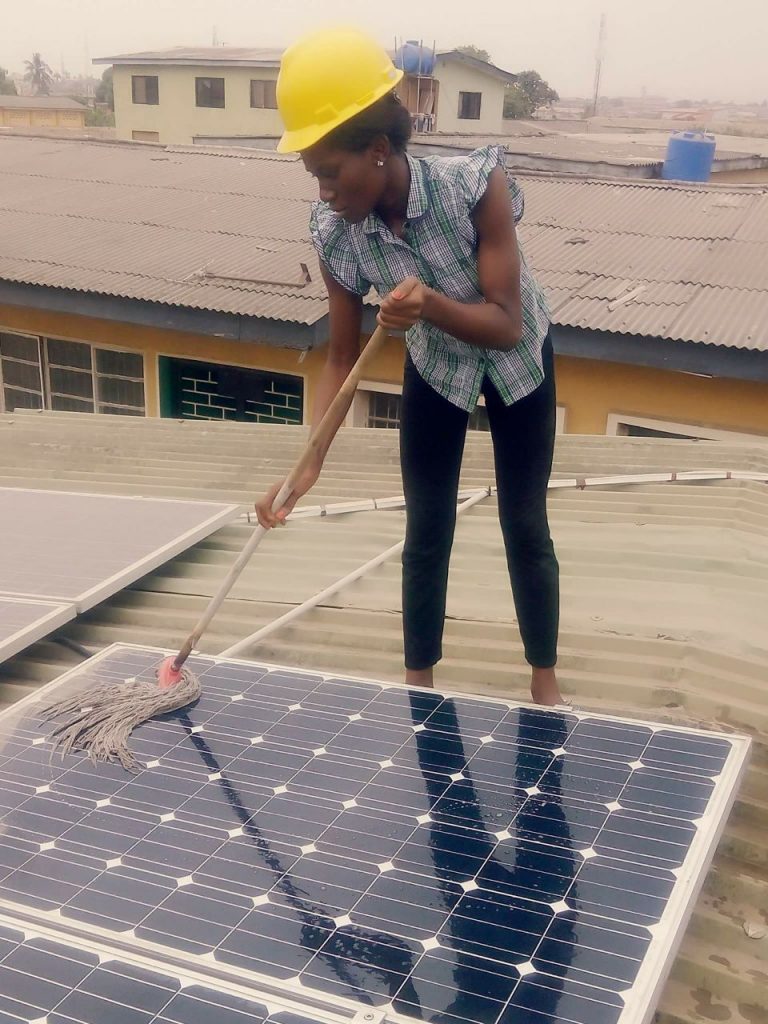
From the picture above you can see a woman cleaning panels. She is standing on the roof of a two story building. Another stereotype we want to shatter. Woman today do whatever they set their minds to do.The world has women leaders, airline pilots, trailer drivers, CEO’s, engineers and much more. Some day it would not be unusual when we post this image.
Another stereotype. Nigerians do bad work and offer poor customer service. We have had the best artisans, engineers, designers, teachers. Jamaica and many countries had teachers from Nigeria. Nigerian were forming metal before the Europeans knew what that was. Catholic priest from Nigeria are found in parishes in the western world. You go to any hospital in America and if you see a black doctor chances are they are Nigeria. We have mediocre talent out there but there are many more who shine. Seek them and they will come to you. Our team members are instructed to ride God is Good Motors because of their exemplary service. On one trip the vehicle broke down, the driver eventually repaired the vehicle but the passengers lacked confidence in the repairs done and asked to be taken back to Lagos. The customer service team of the company called every passenger that evening and apologized. Asked if they still wanted to travel. They passengers instructed to come back the next morning at 6 am. At 5 am customer service called again to make sure they were coming. They received an apology a refund and a free trip to their destination. That happened in Nigeria. A Nigerian company doing the right thing. (Arik could learn a thing or two from them)
The Competition
[envira-gallery id=”2642″]
The day that you continue to accept work that looks like this is over.
A child hood friend I grew up with died 2 years ago. She was electrocuted in her shower. I am sure that a very competent electrician gave a quote and the job went to someone with less experience and a lower price. After all are they not only joining wire? Are they now? Same thing happens when you purchase solar power. Too many people choose price over expertise and they bad mouth solar and not the installation. We charge for installation and we charge a good fee for it. We also charge for an installation kit. In the installation kits is a 6 ft earth rod, ac and DC breakers, bus bars, a change over, a combiner box, quality welding cable and much more.
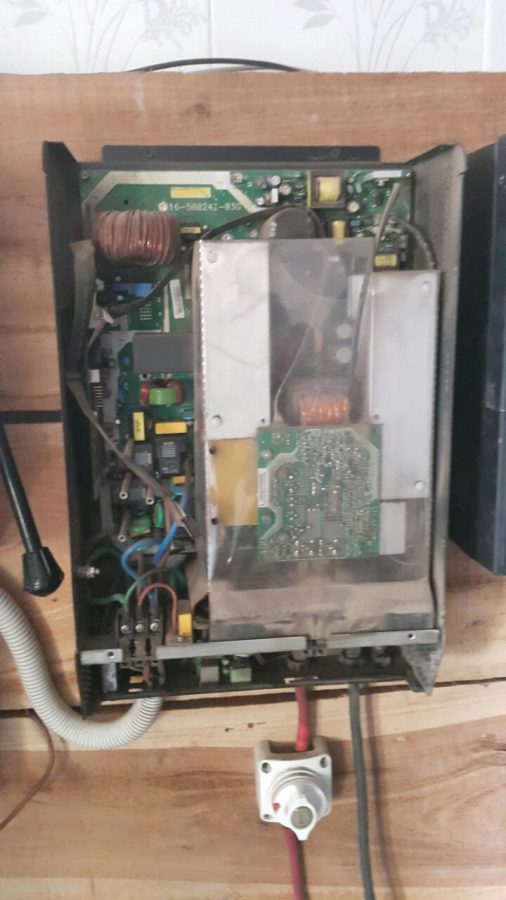
There is a common belief that Nigerian’s lack a maintenance culture and that is reflected in the cars, homes our roads and infrastructure.
The reality is that government officials see more profit in awarding new contracts than in a long term maintenance agreement. The wealthy in Nigeria like their counterparts the world over place a premium on preventive maintenance and repairs.
AWPS offers a service / maintenance agreement. You have invested a premium in your premium solar power system and you need it to last years. You need it to continue to provide service year in year out.
Enjoy pictures of before and after service performed by our team at AWPS Renewable Energy. The service is designed to keep your investment running at peak efficiency.
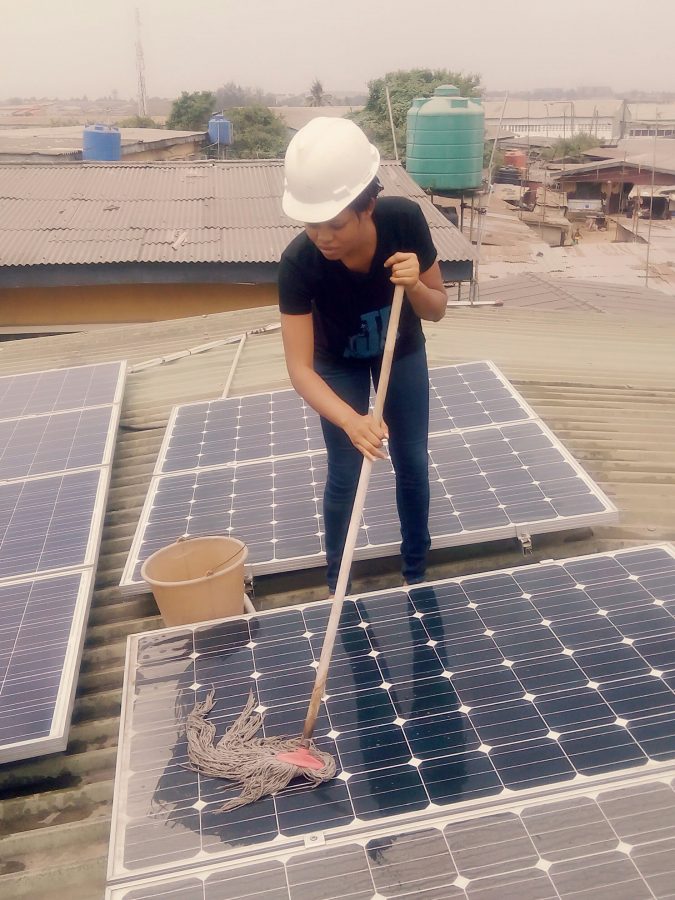
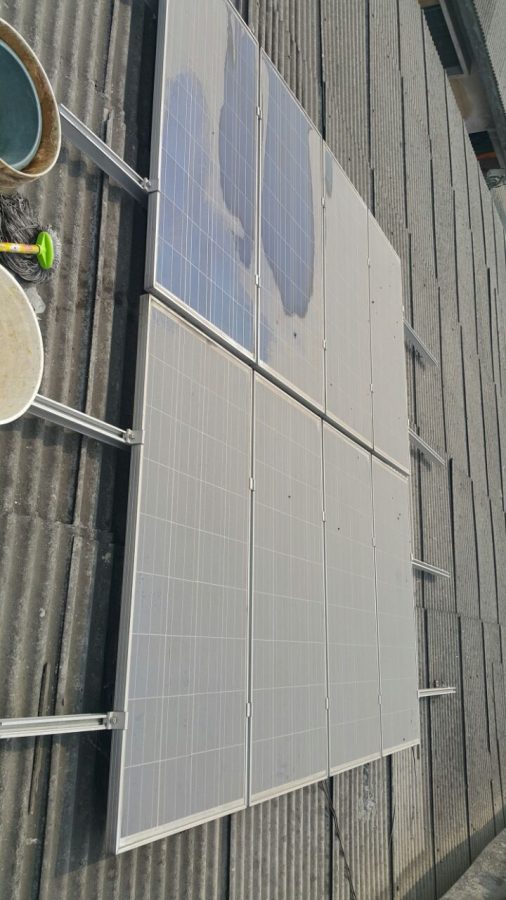
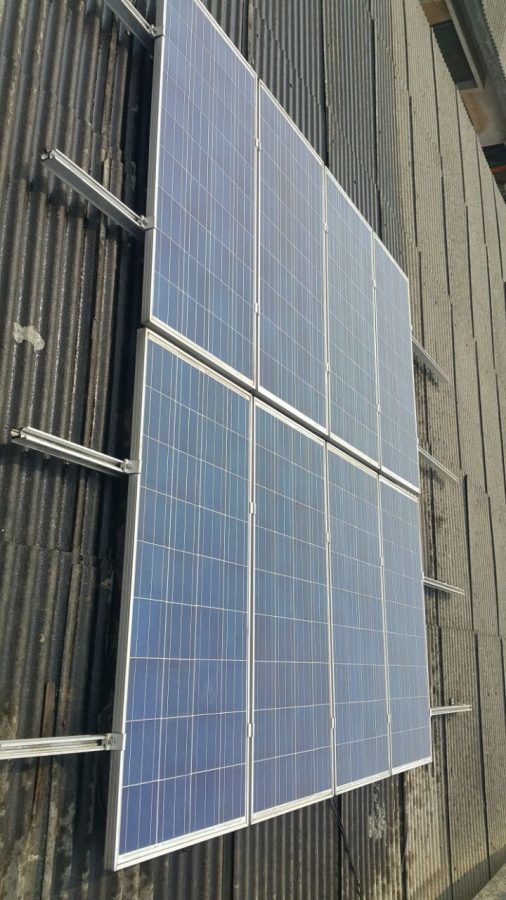
Have you serviced your solar power system? Call us for today +234 1 888 1040
